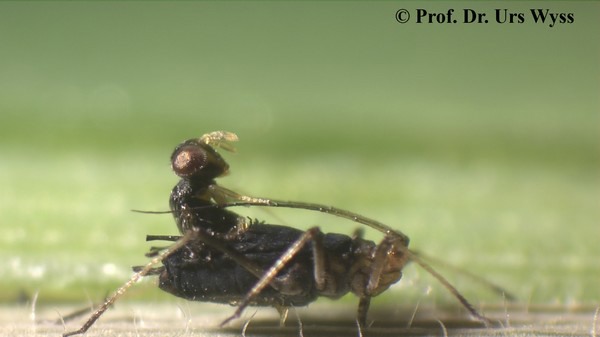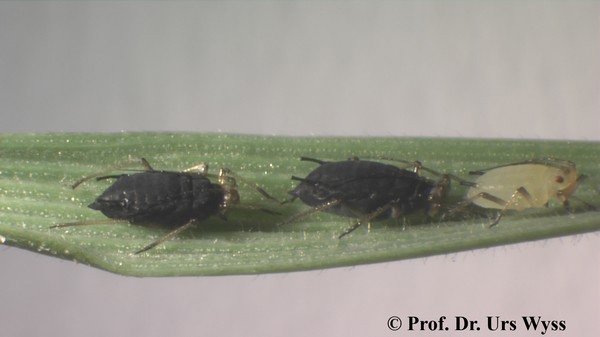Aphids are one of the major pests in field and greenhouse crops. Feeding on plant sap they cause a big damage on the crop. Aphids can also spread different dangerous viral diseases.
The aphids such as Macrosiphum euphorbiae, Macrosiphum rosae, Myzus persicae, Aulacorthum solani, Rhodobium porosum, Acyrthosiphon pisum, Ericaphis fimbriata, Nasonovia ribisnigri are incurred in many greenhouse and field crops both vegetables, ornamentals, soft fruits, herbs and lettuce.
The beneficial wasp, Aphelinus abdominalis, parasitizes the aphids mentioned above very well.

Longevity, robust constitution and host feeding are one of the characteristics of this aphid parasitoid which make aphid control successful. The female Aphelinus abdominalis lives in the crop in average 30 days. Within her long lifespan parasitizes Aphelinus abdominalis up to 750 aphids. Aphelinus abdominalis, differs to Ahidius species, feed on aphids´ haemolymph. This action called “host-feeding” is not only important for the aphid reduction but also for a continuous aphid parasitization. Aphelinus abdominalis has no diapause stage. The aphid parasitization occurs between 12°C and 38°C. At high temperatures acts Aphelinus abdominalis much better as Aphidius species.

Behavioural studies (2001) from Dr. Gunnar Mölck and Pr. Dr. Urs Wyss at the Institute of Phytopathology, University of Kiel in Germany have shown that Aphelinus abdominalis has a very good sense of orientation and learning aptitude. The odour of aphid-infested plants guides Aphelinus abdominalis to the aphids´ hosts. It helps them to locate new aphid colonies quickly.

The company ÖRE Bio-Protect in Germany has 30-years experience in producing of Aphelinus abdominalis. The CEO, Svitlana Sharyfulina, says: "Aphelinus abdominalis belongs because of her robust and effective kind to my favourite beneficial wasp. An application of Aphelinus abdominalis is effective also at a higher aphid infestation. As a part of preventive strategy these parasitic wasps can be used in banker plant systems. The demand on Aphelinus abdominalis is increasing during the last years continuously. We have fit and optimised our Aphelinus production to be able to serve the increasing demand.”
For more information: ÖRE Bio-Protect
ÖRE Bio-Protect
Biologischer Pflanzenschutz GmbH
Neuwührener Weg 26
D-24223 Schwentinental
T.: 0049(0)4307 5016
M: 004915236278099
kontakt@oere-bio-protect.de
www.oere-bio-protect.de
